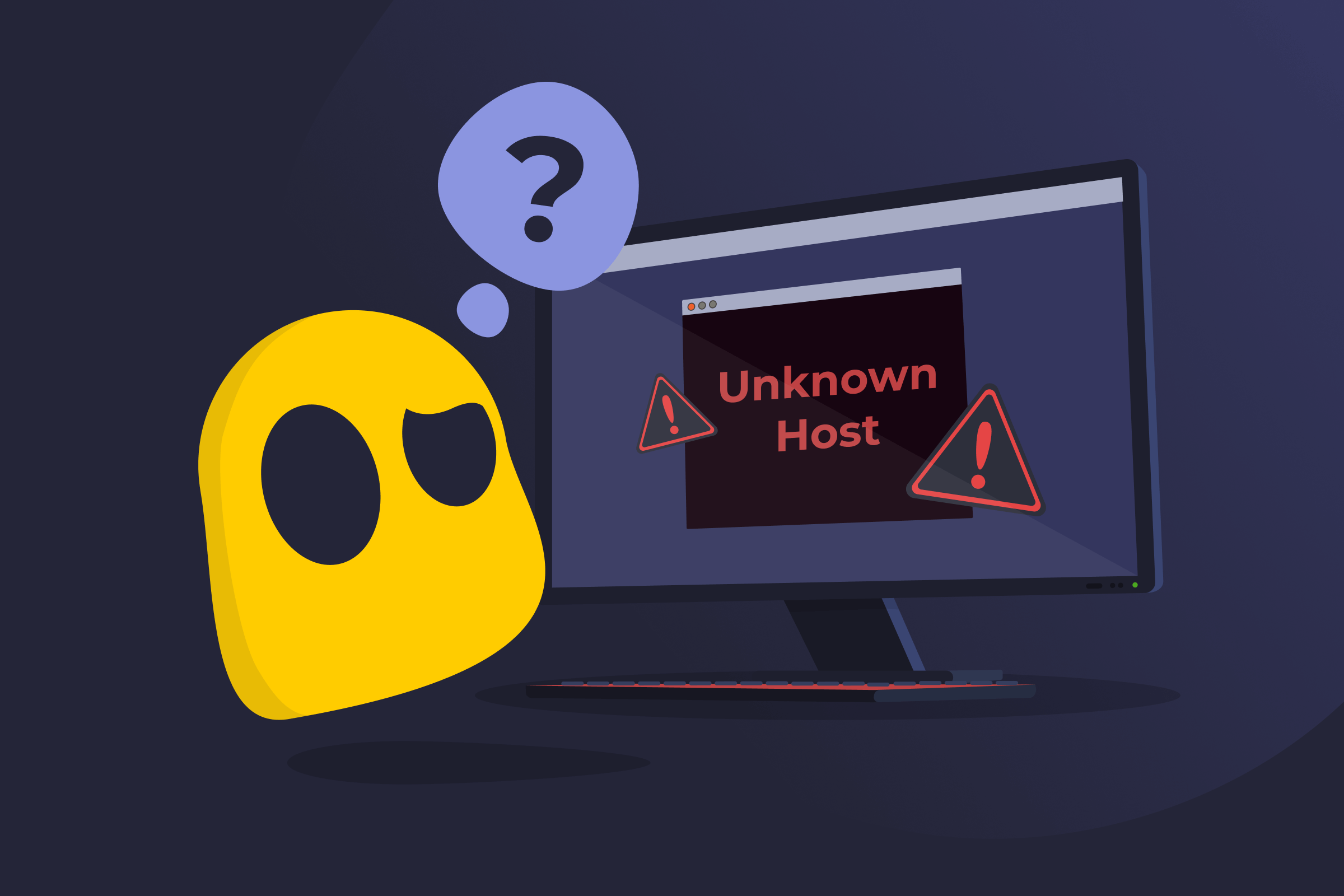Unknown Host

Unknown Host Definition
An unknown host is an error that appears when a device or app can’t find an IP address that matches a hostname or domain name. In most cases, the error doesn’t usually signal a security threat. Instead, it simply indicates that the Domain Name System (DNS) couldn’t translate a website name into an IP address. This could happen due to DNS server issues, typos, or connection problems.
That being said, a repeated unknown host error could indicate a DNS attack or DNS poisoning. However, it’s very rare and unlikely to happen.
Common Causes of Unknown Host Errors
- Hostname or domain typos: A misspelled website or server name can’t be resolved by DNS.
- DNS server issues: Resolvers can temporarily malfunction or go offline.
- Unavailable domains: Website names that expire, get removed, or are unregistered can’t be found.
- Connectivity problems: Unstable connections or wrong network settings can trigger the error.
- Hosts file errors: Incorrect or outdated entries in the local host file may block resolution.
Examples of Unknown Host Errors
- Video games: Display the error if a game server address is mistyped or unreachable.
- Email clients: Show the message if the mail server’s hostname can’t be resolved.
- Web browsers: Return unknown host errors when a website domain is incorrect or unavailable.
Tips on Fixing Unknown Host Errors
- Check the hostname or domain name for any spelling mistakes.
- Troubleshoot the internet connection to fix potential problems.
- Switch to a different device or network and try to access the same service again.
- Flush the DNS cache to remove any outdated entries.
- Change DNS settings and use a different resolver, like OpenDNS or Cloudflare DNS.
- Review the hosts file, looking for incorrect entries to remove.
- Ensure the firewall and antivirus aren’t blocking access to the services.
- Contact the ISP or network admin if nothing works.
Read More
FAQ
An unknown host is a type of error that occurs when DNS (Domain Name System) can’t resolve a device or website name to an IP address. This often happens due to incorrect names, DNS server problems, or connectivity issues.
The most common solutions for unknown host errors are to check the server or site name for typos, see if the connection is stable, use a different device or network, or ensure firewall and antivirus settings aren’t blocking access. More advanced methods include clearing the DNS cache, using a different DNS server, and checking the hosts file for incorrect entries.
Common reasons for the error to appear include misspelled website or server names and DNS (Domain Name System) server issues. It can also occur when the site domain expires or isn’t registered, the internet connection is unstable, or the hosts file contains incorrect entries.

 45-Day Money-Back Guarantee
45-Day Money-Back Guarantee